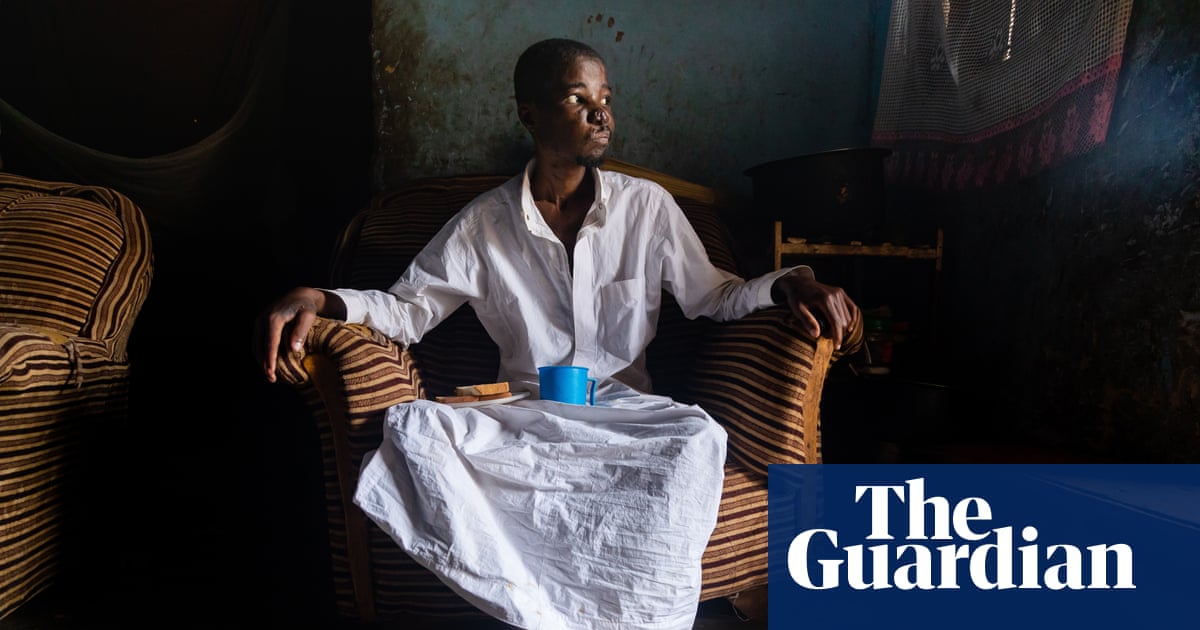
Jane Noury’s coming of age journey is similar to many suburban American teens: anchored by family and friends but impatient to expand beyond a small town, selfies and insecurities and confidence, so much incipient energy, waiting to begin. As captured in Always Jane, a four-part series premiering on Amazon Prime Video this week, Noury’s life in 2019 and 2020 was marked by the classic emotional rollercoaster of friendships, family and figuring out who you are – on top of the upheaval of the pandemic and alongside the journey and challenges of growing up trans in America.
The series, directed by Jonathan C Hyde with Noury as an executive producer, embeds in both mundane and remarkable moments in Noury’s life between the ages of 18 and 20, a time in which she graduated high school, began modeling, weathered quarantine, underwent gender-affirming surgery, and moved away from home in Sparta, New Jersey, to college in New York City. It’s also an intimate, at times unvarnished, portrait of a close-knit, affectionate family, one committed to supporting Jane and learning with her.
There’s moments of deep vulnerability – Noury’s parents, David and Laura, discussing how they came to understand their child’s gender dysphoria, oldest sister Emma remembering her fury at a school bully targeting Jane – and plenty of nuclear family staples: ribbing at the dinner table, bickering, battles over homework. But “we all saw the bigger picture in the fact that we wanted to show a very positive, loving and accepting environment, and what that could be like for a transgender person specifically, and how that could relate to anyone else,” Jane Noury told the Guardian. “It’s not just about being trans.”
The series offers a compassionate and understated window into a late adolescent experience still massively underrepresented on-screen and under siege in several states. At a time when a Terf (trans-exclusive radical feminist) belief system that polices trans bodies and folds transphobia into warped, exclusive feminism continues to go mainstream, when Netflix stands by a Dave Chappelle special laced with transphobic jokes, and when state legislatures pursue a persistent and evolving assault on trans rights from bathrooms to sports, Always Jane offers light in the hyper-specific: one loving, supportive family with a trans daughter, figuring things out as they go along.
The hostile context occasionally filters into the Nourys’ household – a news clip about Trump’s ban on transgender participation in the military, recollections of the difficulty the Nourys faced getting Jane’s hormone treatments covered by insurance – but is not explicitly debated or discussed at length; there’s not much to say when the stakes are so personal and the answers so obvious. “I hope people see this isn’t a political issue, this is a human rights, civil rights issue,” said Hyde. “It shouldn’t be one side versus the other – if you watch this story and you meet Jane Noury and you empathize with this, how can you deny her of everything that your kids have and everything that the rest of us have?”
“The story is about loving your kids – that’s the story,” he added. “What is political about loving your children?”
Though a film-making student in high school and now at the School of Visual Arts in Manhattan, Noury, now 20, had “no intention of making a docuseries about my life,” she said. She first met Hyde with her mother in 2019, at a brunch for competitors in a model search by Slay Model Management, an all-trans modeling agency based in Los Angeles. Hyde originally intended to document the model search, which forms the bulk of the second episode, as an affirmation of trans beauty and the first occasion, for many of the models, to be a in room of majority trans people.
But he switched plans upon meeting Jane, who was upfront about her experience and eager to tell a story whose relative positivity and tenderness could offer a crucial model for other families with trans members. According to a Glaad study, 84% of Americans don’t personally know someone who is transgender; media representations thus hold disproportionate power over information and impressions about transgender people, including for transgender people sorting through their own self-perception. “If you don’t know a trans person, you don’t know necessarily how to relate to their experience,” said Hyde. “A lot of people could see Jane, and see the Nourys, and maybe understand something that they don’t really understand much better.”
Hyde provided Jane with a few handycams to self-document the few months leading up to the competition in February 2020 – the anticipation of a new horizon, the drudgery of school, moments of boredom, excitement and play with her sisters, parents and friends. “This was never planned to happen. It was not supposed to be an Amazon show,” said Noury. “It is a transgender coming of age story but it’s also more about just the behind the scenes of my life and trying to figure out what I want as I get older.”
“We didn’t feel like we should be trying to tell the perfect trans story, or tell the perfect trans narrative,” said Hyde. “We wanted to tell a perfect Noury story, and to tell the family story.”
There was, however, much discussion over whether and how to depict Jane’s gender-affirming surgery in 2020, owing to the long-running trend in media of obsessing over transgender bodies and surgery (see: any 90s talkshow segment on transgender people, as summarized in the Netflix documentary Disclosure, on the history of trans on-screen depictions). The title of the series reflected an explicit rejection of before/after binaries and fixations on transition as a strictly surgical change.
Hyde, the Nourys, and a trans consultant worked to avoid building the series around Jane’s surgery – no before and after pictures, no detailed images of the procedures beyond Jane’s emotional experience. “We didn’t want to make [it] a focal point of the story,” said Hyde. But some inclusion of Jane’s anticipation and emotional recovery, in the third and fourth episodes “gave the series a more in-depth side to what some trans people go through”, said Noury. “For me, personally, I needed to have surgery to help me along the road. For me, personally, I needed that in my transition. But a lot of people don’t need that.”
Gender-affirming surgery, though crucial and intensive healthcare for many trans people, is “not the overall goal, and your life still continues after surgery”, said Noury. “I didn’t want to create this idealistic journey so when other people, especially people in my community, see this, they think this is the end-all goal, but it’s not. It’s your journey, you decide.”
A goal instead is presenting more representation of trans life, still burdened by a litany of long-running stereotypes and the double-edged sword of visibility mistaken for material change in the lives of trans people, particularly trans women of color. Always Jane is a step toward the goal of “more content that caters to trans experience and that is accurate”, said Noury. “There needs to be more people in the writing room that are trans or that actually know what the experience is like for some people.”
The series is “definitely for my community”, said Noury. “But it’s really just about the love and acceptance of my family, and how that can really help a transgender child flourish.” Such continuous support, the faith in one’s child to articulate their desires, is worthy of celebration “regardless of being trans”, she added. “I feel like that could be said for any child, just being accepted and loved and heard.”












